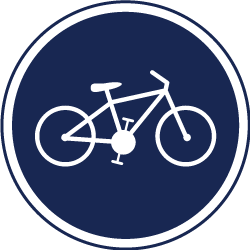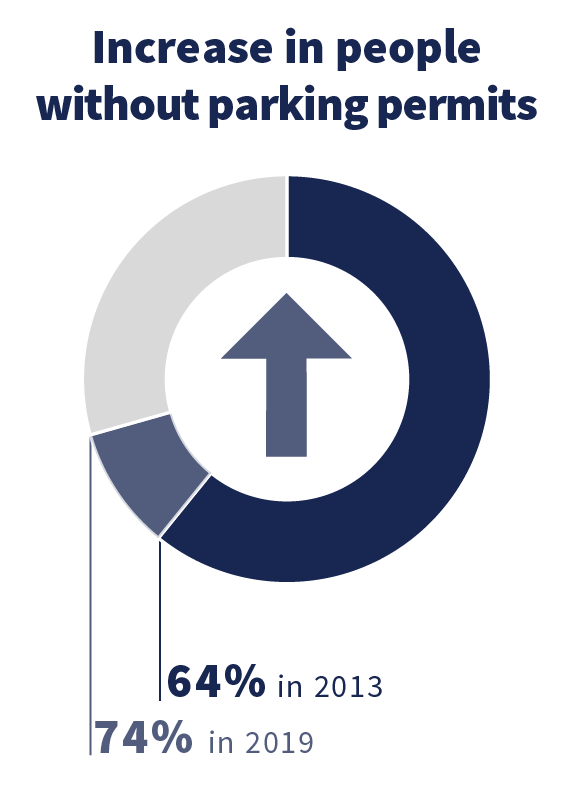
Washington University in St. Louis’ goal is to become a model in the Midwest for alternative and low carbon transportation.
2015 Strategic Plan for Sustainable Operations
Objectives & Progress
Single-Occupancy Vehicles | Achieved
In 2019, nearly 75% of full-time students and employees at WashU didn’t have a parking permit. This represents a 16% decrease in single-occupancy vehicle (SOV) commuting to the Danforth Campus between 2013 and 2019, when adjusted for growth of the campus population.
This commute shift is enabled by the development of robust alternative transportation programs, partnerships to enhance public transit access, as well as improvements to bicycle and pedestrian infrastructure on campus.
Alternative Transportation Programs
To support and encourage commuters to not drive alone, WashU has developed a robust portfolio of transportation options for traveling to and from, within, and between campuses.
Not only are WashU campuses physically connected to transit stations, but the University also offers U-Passes to all full-time students and employees, providing free and unlimited access to our regional network of public buses and trains. About 20,000 U-Passes are distributed every year to the WashU community.
The car-share program provides an affordable access to a car on campus, allowing for occasional trips to off-campus meetings, or trips to the grocery store for students. Since 2013, the number of car-share trips has steadily grown following a 10% annual increase rate in average.
Parking incentives are offered to those who carpool through the Bearly Drivers program, as well as to those who drive to campus occasionally through the Occasional Parking Permit. The School of Medicine even offers free parking permits to people who vanpool.
For those who drive to campus, the university supports commuters who use electric vehicles (EVs). The School of Medicine offers EV parking permits with access to level 2 charging stations, while the Danforth campus offers unrestricted access to level 1 and 2 charging stations to anyone who wishes to use them. Both campuses have significantly expanded their charging infrastructure since 2014.
Highlights
Biking Culture
Shared Mobility
Multimodal Campus
Regional Impact
Transportation Partners
We would like to acknowledge and thank our campus partners who are instrumental in implementing and carrying forward the vision displayed on this page. The partners listed below have and continue to be committed to achieving the goals for alternative transportation on our campuses.



